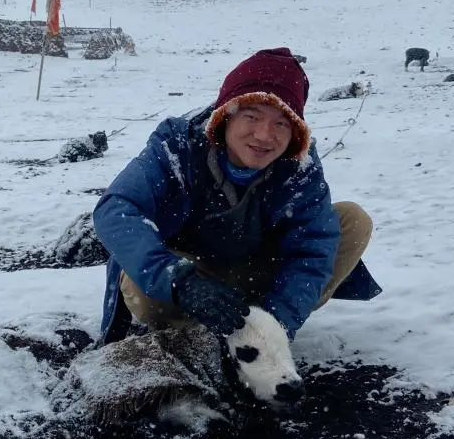
This event is co-hosted by Yale Club of Beijing and Yale Center Beijing.
Event Time
September 16, 2023 | Saturday
9:00 pm - 10:30 pm Eastern Daylight Time (EDT)
September 17, 2023 | Sunday
9:00 am - 10:30 am China Standard Time (CST)
Participation Format
Registration is required to obtain a ZOOM Conference access link, which will be sent to your registration email or phone shortly. Please enter the ZOOM room 15 minutes before the starting time. When the room is full, latecomers will not be able to access the ZOOM conference.
Registration
Please click the“HERE” to register. Please send an email to yalecenterbeijing@yale.edu if there are any problems.
Ticket
Free.
LANGUAGE
The language of the event will be Chinese.
The Event
The harmonious coexistence between humanity and nature requires not only scientific research, technological innovation, financial support, and policy adjustments, but also a profound shift in values and perception.
On September 17, Yufang Gao, MS ’14 PhD ’23 in Conservation Science and Environmental Anthropology and Research Associate of the Yale InterAsia Initiative, will give an online talk on “Human-Wildlife Coexistence.” In this presentation, he will explore how traditional culture shapes people’s imagination of coexistence, ends and means, and its implications for conservation, using a case study on interactions between Tibetan herders and snow leopards in the Three Rivers Source Region of Qinghai, China.
The Speaker

Yufang Gao MS ’14 PhD ’23
Research Associate, Yale InterAsia Initiative
Yufang Gao serves as a research associate with Yale InterAsia Initiative and provides advisory support to several conservation organizations. He also founded the Conservation Edgewalkership Program, helping individuals dedicated to the harmonious coexistence of humans and animals. He has collaborated with various local and international organizations in wildlife research and conservation. His areas of expertise encompass human-wildlife coexistence, illegal wildlife trade, Tibetan Buddhism and ecology, conservation strategy, and capacity building. He holds a joint Ph.D. in Conservation Science and Environmental Anthropology from Yale University, a master’s degree in environmental science from Yale School of the Environment, and a bachelor’s degree in Biological Sciences from Peking University.
Public Event